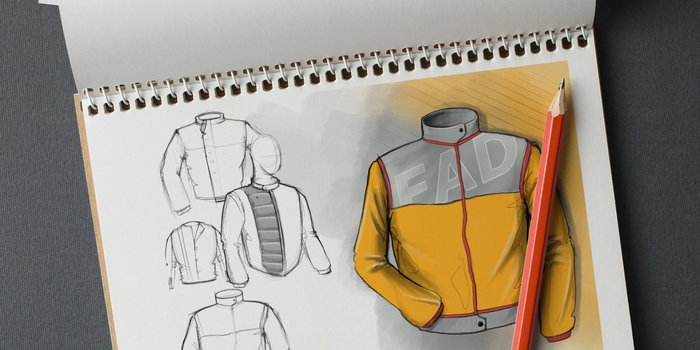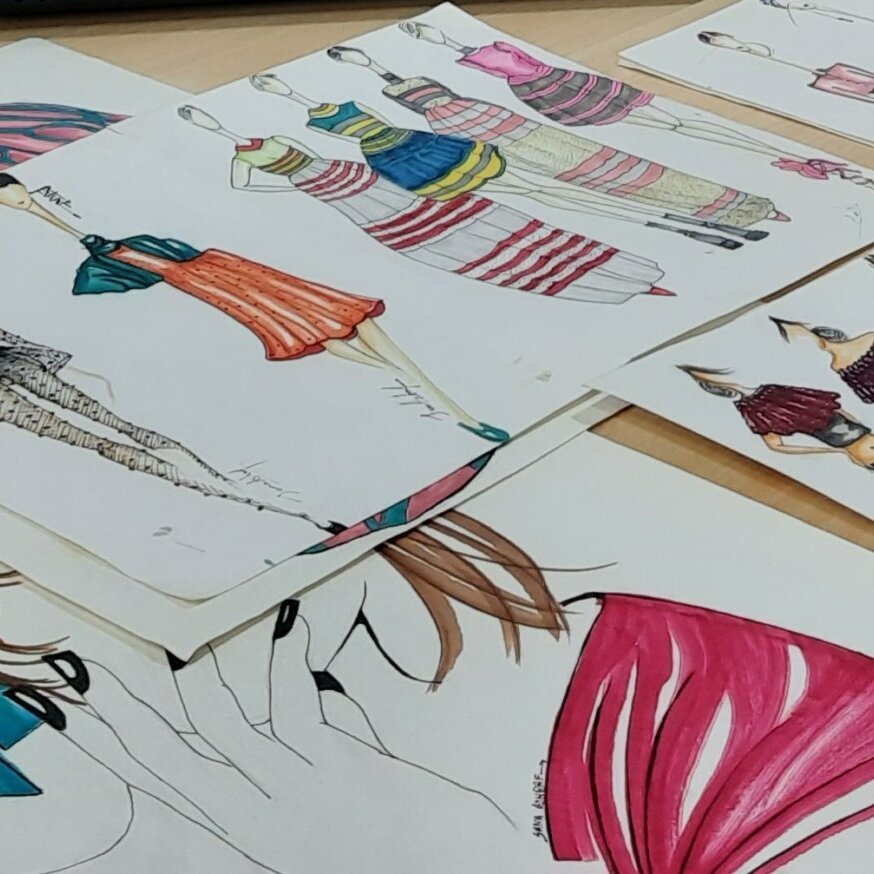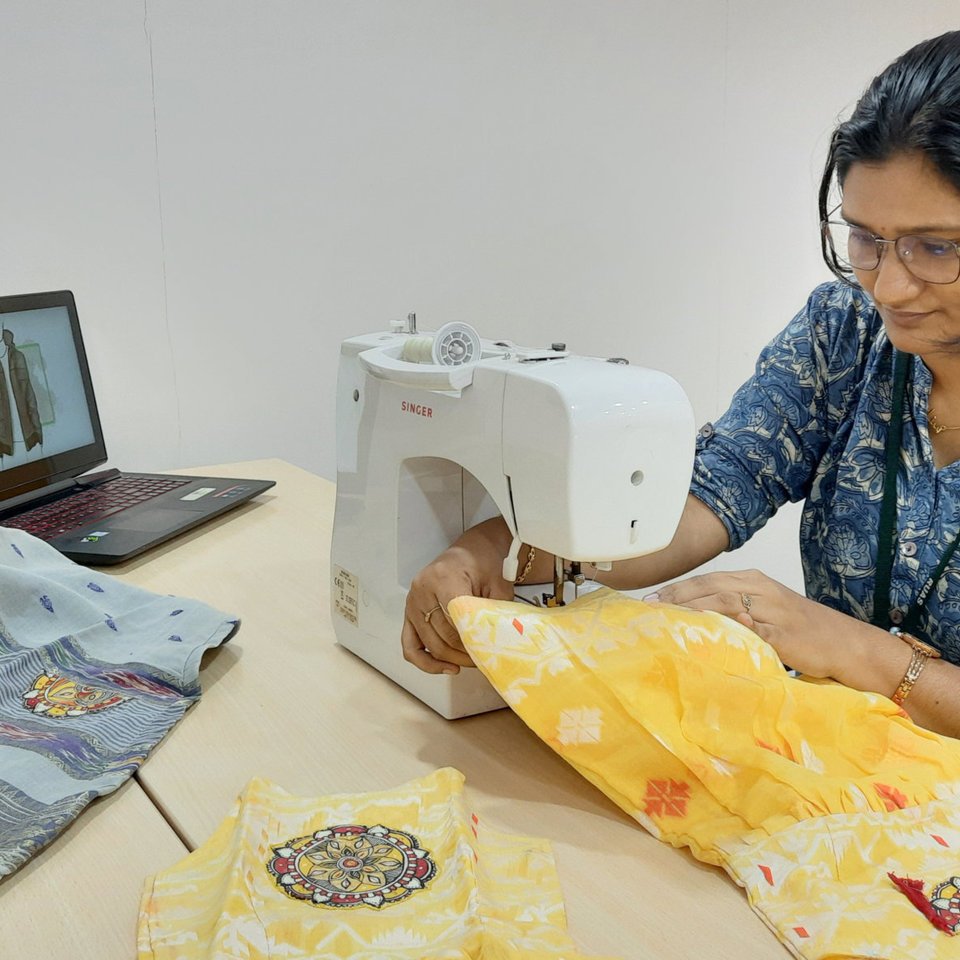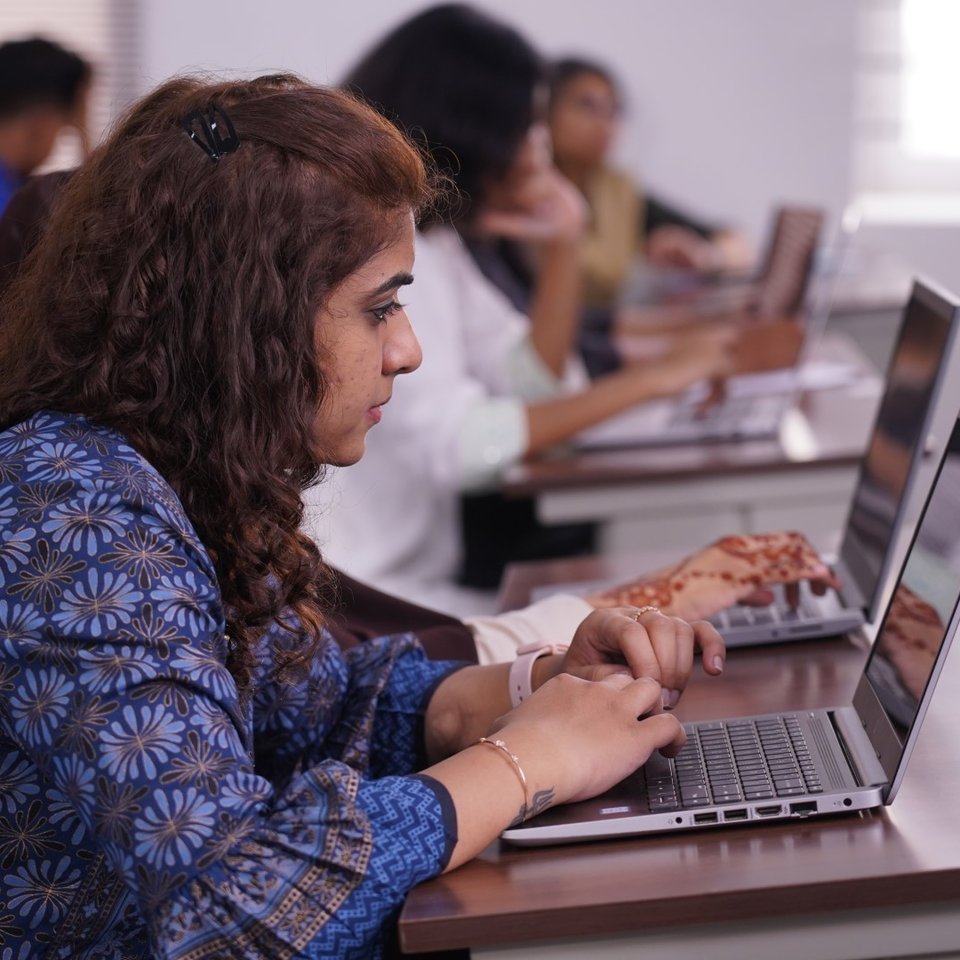
Department of Fashion Design
Established in 2015, the Department of Fashion Design helps mould designers who bring together aesthetics, style, and functionality to create the products we wear, use, and love.
An education in fashion design plays a crucial role in helping students learn how to translate their ideas into clothing items that are stylish and innovative, and that also address the needs of customers.
While students are actively encouraged to discover and hone their creative talents, emphasis is also laid on the technical and practical aspects of fashion design. This includes analyzing future trends, learning about the manufacturing and marketability of an idea, and understanding how different materials contribute to different outputs.
At the Department, students study about design specializations like apparel, jewelry, accessories, and occupational and functional textiles.
The Department also houses the Centre for Garment Design Manufacturing and Quality Control, an initiative set up in collaboration with the Department of Handloom and Textiles, Government of Karnataka. Students can use the Centre to enhance their skills and improve their knowledge.
Vision
Aspires to be a premier institute of academic excellence all over the global education for fashion, textiles, research and partnership with Industry by cultivating graduates to be creative, innovative, and ethical by upgrading the knowledge and pushing the boundaries to achieve a sustainable progress and apply professional knowledge for the betterment of mankind.
Mission
- To inculcate and enhance the creativity, imagination, innovation and practical hands on skills of students
- To apply design fundamentals, analyse design issues, interpret and infer data by keeping in view the public health, safety, cultural, societal and environmental considerations
- To develop sustainable solutions and understand their effect on society and environment
- To adapt to the changes and advancements in Technology and engage in independent and life-long learning.
Quality Policy:
The Department of Fashion Design of Faculty of Art and Design, Ramaiah Technology Campus, Ramaiah University of Applied Sciences aims to attain its mission through following quality policy
- Complex design concepts teaching and learning process in resonance with students
- Fostering curiosity, ignite a passion for innovation, character, behavioural development and love for learning
- Introspection of developed skills, quantitative and qualitative measure of it by suitable methods and techniques
- Integration of learning with ease, plasticity and flexibility for application in the day to day life
Programme Outcomes (POs)
B. Des. and M. Des (Fashion Design) Graduates will be able to:
PO 1. Apply fundamental aspects of art, design and culture and apply its principles while designing.
PO 2. Apply manual and digital tools and techniques in various media to express and convey design ideas in 2D, 3D digital and physical form skilfully.
PO 3. Identify, interpret and generate insights for developing new products based on data gathered from various research methods including ethnographic research to support the ideation of relevant and appropriate design solutions.
PO 4. Design and develop solutions based on identified user needs considering style, theme, elements and principles of aesthetics, functionality and safety.
PO 5. Apply critical judgement and evaluate design solutions on aesthetic quality and intended end use, art and cultural impact.
PO 6. Apply reasoning informed by the contextual knowledge to assess societal, health, safety, legal and cultural issues and the consequent responsibilities relevant to the professional design practice.
PO 7. Identify the impact of the professional design solutions in societal and environmental contexts, and demonstrate the knowledge of, and need for sustainable development.
PO 8. Apply ethical principles and commit to professional ethics and responsibilities and norms of the design practice.
PO 9. Ability to function effectively as an individual, and as a member or leader in diverse teams, and in multidisciplinary settings.
PO 10. Ability to communicate effectively on complex design activities with the design community and with society at large, such as, being able to comprehend and write effective reports and design documentation, make effective presentations, and give and receive clear instructions.
PO 11. Ability to demonstrate knowledge and understanding of the design and management principles and apply these to one’s own work, as a member and leader in a team, to manage projects and in multidisciplinary environments.
PO 12. Ability to recognize the need for and have the preparation and ability to engage in independent and life-long learning in the broadest context of trend change.
Program Educational Objectives (PEOs)
- PEO‑1. Provide students with a strong foundation in designing, art, and creativity and enable them to become experts in illustrations, textiles, and apparel manufacturing to fit the marketplace and fulfill consumers’ demands
- PEO‑2. Impart analytic and cognitive skills required to develop innovative solutions for R&D, Industry, and societal requirements
- PEO‑3. Provide sound theoretical knowledge and apply practical professional skills and ethics related to textiles, fashion sketching, garment manufacturing, and entrepreneurship to build a successful career in fashion design
- PEO‑4. Inculcate strong human values, social, interpersonal, and leadership skills required for professional success in evolving global professional environments
Programme Specific Outcomes (PSOs)
At the end of the B. Des and M. Des (Fashion Design) program, the graduate will be able to:
- Apply the knowledge in Designing Fashion apparels, Illustration, Textiles, Pattern Making, Apparel Production, Digital Designing , Fashion Marketing, and development of suitable artifacts
- Construct the apparels by conceptualizing, developing designs, applying suitable process and techniques as per textile, garment quality measures with a wide spectrum of relevance to the fashion industry, and consumers
- Analyse the marketing strategies and promotion techniques for fashion apparels with ample communication, professional development and suggest suitable solutions for allied industries
- Demonstrate the practical skills, leadership qualities and strive for the betterment of the organization, environment, and society




